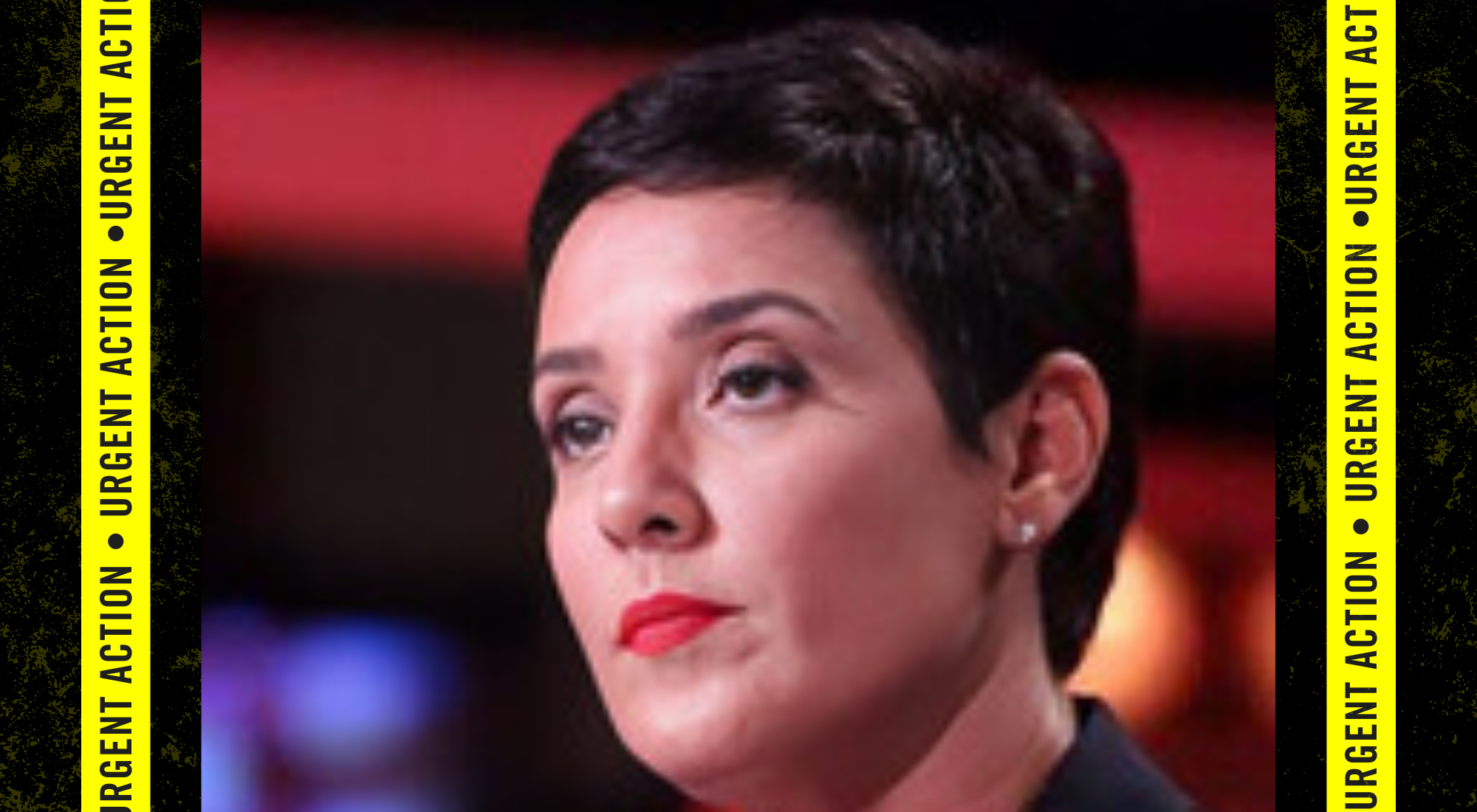Tunisian lawyer and media personality Sonia Dahmani has been unjustly detained since May 11, 2024, when security forces arrested her at the Tunisian Bar Association’s office in Tunis. She is facing five separate legal cases, all based on her exercise of free speech.
Sonia is currently held in Manouba Prison, where conditions are cruel and degrading. She has been exposed to extreme cold and denied access to basic necessities, violating her human rights and dignity.
The Tunisian authorities must act now. They should immediately and unconditionally release Sonia Dahmani, overturn her unjust convictions, and drop the baseless investigations against her.
Here’s what you can do:
Write to the President of the Republic of Tunisia urging the authorities to:
- Immediately and unconditionally release Sonia Dahmani from detention.
- Quash her convictions and sentences and drop all baseless criminal investigations against her.
- Grant her regular access to her family and lawyers.
- Ensure her detention conditions comply with international standards, including access to adequate healthcare and basic necessities.
Write to:
President of the Republic Kais Saied
Route de la Goulette
Site archéologique de Carthage, Tunisie
Email: contact@carthage.tn
X (formerly Twitter): @TnPresidency
Salutation: Your Excellency:
And copy:
His Excellency Lassaad Boutara
Ambassador
Embassy of the Republic of Tunisia
515 O’Connor Street
Ottawa, ON K1S 3P8
Tel: (613) 237-0330, -0332 Fax: (613) 237-7939
Sonia Dahmani: A target of repression
Sonia Dahmani, a 59-year-old Tunisian lawyer and prominent media personality, is facing five legal cases for expressing critical opinions about the authorities. Known for her appearances on popular radio and TV programs like Emission Impossible and Denya Zida, she has consistently spoken out against injustice.
In November 2023, Sonia was summoned by an investigative judge after the General Directorate of Prisons filed a complaint over her remarks about poor prison conditions. In January 2024, she faced another summons after criticizing the justice minister and denouncing mass incarceration.
On May 7, 2024, during a TV show, Sonia questioned Tunisia’s migration policies, saying, “What extraordinary country are we talking about? The one where half of young people want to leave?” Days later, she was charged under Decree-Law 2022-54 for allegedly spreading “fake news,” which carries severe penalties, including up to 10 years in prison if directed at public officials. On May 11, masked security forces stormed the Tunisian Bar Association’s office to arrest her.
A broader crackdown on freedom of expression
Sonia’s arrest is part of a larger crackdown on free speech in Tunisia. On May 13, judicial authorities summoned representatives of private media outlets like IFM, Diwan FM, and Carthage+ to question their work. Following Sonia’s detention, Tunisia’s Bar Association staged a nationwide strike to protest her arbitrary arrest. International actors, including France and the European Union, have also raised concerns about the escalating repression targeting civil society and journalists.
Other cases reflect the hostile environment for free expression. On May 22, prominent journalists Borhen Bsaies and Mourad Zeghidi were sentenced to one year in prison under Decree-Law 2022-54 for allegedly spreading “false news.” Their sentences were later reduced to eight months on appeal.
Decree-law 2022-54: A tool for silencing dissent
Since its enactment in September 2022, Decree-Law 2022-54 has been used to stifle dissent. At least 22 individuals, including lawyers, journalists, bloggers, and activists, have been prosecuted under the law for public comments perceived as critical of the government. Many cases originated from governmental complaints.
This law violates Tunisia’s international commitments under the African Charter on Human and Peoples’ Rights and the International Covenant on Civil and Political Rights (ICCPR), which guarantee freedom of expression. Its ambiguous and overly broad language on “fake news” and other cybercrime-related offenses fails to meet the principles of legality, necessity, and proportionality required under international law.
Tunisia’s deteriorating human rights landscape
Since President Saied’s consolidation of power on July 25, 2021, Tunisia has experienced a sharp decline in human rights protections. Claiming emergency powers under the 2014 Constitution, the president has targeted opposition figures, dissidents, and critics, subjecting them to harassment and arbitrary detention.
The crackdown on free speech, peaceful assembly, and association undermines Tunisia’s rule of law and human rights obligations. Articles 19, 21, and 22 of the ICCPR and Articles 9, 10, and 11 of the African Charter explicitly protect these rights. Tunisia must reverse this trend, repeal repressive laws like Decree-Law 2022-54, and restore an environment where citizens can freely express their views without fear of retaliation.
Please take action as soon as possible until June 16, 2025! The UA will be duly updated should there be the need for further action
























